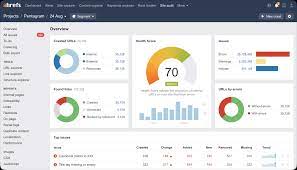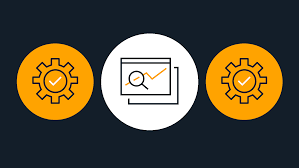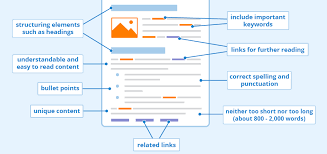Unveiling the Secrets of SEO Page Analysis: A Comprehensive Guide to Optimising Web Pages
SEO Page Analysis: Unveiling the Secrets of Optimised Web Pages
In the realm of digital marketing, Search Engine Optimization (SEO) plays a crucial role in determining the success of a website. One essential aspect of SEO is page analysis, which involves evaluating and optimising individual web pages to improve their search engine rankings and overall performance.
The Importance of SEO Page Analysis
SEO page analysis is a systematic process that involves examining various elements of a web page to ensure it is optimised for search engines. By conducting a thorough analysis, digital marketers can identify areas for improvement and implement strategies to enhance the visibility and relevance of the page.
Key Elements of SEO Page Analysis
Some key elements that are typically analysed during an SEO page analysis include:
- Title Tags: Ensuring that title tags are relevant, descriptive, and contain targeted keywords.
- Meta Descriptions: Crafting compelling meta descriptions that entice users to click on the link.
- Heading Tags: Using proper heading tags (H1, H2, H3) to structure content and improve readability.
- Keyword Usage: Strategically incorporating relevant keywords throughout the content.
- URL Structure: Creating clean and concise URLs that reflect the page’s content.
- Image Optimization: Optimising images with descriptive alt text and appropriate file names.
- Internal Linking: Establishing internal links to improve navigation and enhance user experience.
- Mobile-Friendliness: Ensuring that the page is responsive and mobile-friendly for optimal viewing on different devices.
The Benefits of SEO Page Analysis
By conducting regular SEO page analyses, website owners can enjoy a range of benefits, including:
- Improved Search Engine Rankings: Optimising web pages based on analysis results can lead to higher rankings in search engine results pages (SERPs).
- Better User Experience: A well-optimised page provides users with valuable content and enhances their overall browsing experience.
- Incrased Organic Traffic: Implementing SEO recommendations from page analysis can attract more organic traffic to the website.
Six Essential SEO Page Analysis Tips for Enhancing Your Website’s Visibility
- Analyse the page title to ensure it is relevant and includes targeted keywords.
- Check meta descriptions for each page to make sure they are unique and compelling.
- Review header tags (H1, H2, etc.) to see if they are properly structured and contain keywords.
- Examine the URL structure for readability and keyword inclusion.
- Evaluate image alt text to confirm it is descriptive and includes relevant keywords.
- Assess internal and external links for relevance, quality, and proper anchor text.
Analyse the page title to ensure it is relevant and includes targeted keywords.
When conducting SEO page analysis, it is crucial to scrutinise the page title meticulously. Ensuring that the page title is not only relevant to the content but also incorporates targeted keywords can significantly impact the website’s search engine visibility. A well-crafted page title not only informs search engines about the page’s topic but also entices users to click through by providing a clear and concise preview of what the page offers. By optimising the page title with strategic keywords, website owners can enhance their chances of ranking higher in search results and attracting relevant organic traffic.
Check meta descriptions for each page to make sure they are unique and compelling.
When conducting SEO page analysis, it is crucial to check the meta descriptions for each page to ensure they are both unique and compelling. Meta descriptions serve as a brief summary of a web page’s content in search engine results, influencing users’ decision to click through. By crafting unique and engaging meta descriptions that accurately reflect the page’s content, website owners can improve click-through rates and enhance their overall search engine visibility.
Review header tags (H1, H2, etc.) to see if they are properly structured and contain keywords.
When conducting SEO page analysis, it is crucial to review header tags such as H1, H2, etc., to ensure they are properly structured and incorporate relevant keywords. Header tags not only help search engines understand the hierarchical structure of the content but also provide users with a clear and organised reading experience. By optimising header tags with targeted keywords, website owners can improve their chances of ranking higher in search engine results and attracting more organic traffic to their site.
Examine the URL structure for readability and keyword inclusion.
When conducting SEO page analysis, it is essential to examine the URL structure to ensure both readability and keyword inclusion. A well-structured URL not only enhances the user experience by providing clear navigation but also plays a crucial role in search engine rankings. By incorporating relevant keywords into the URL and keeping it concise and descriptive, website owners can improve their chances of appearing higher in search results. Additionally, a clean URL structure contributes to better indexing by search engines, ultimately leading to increased visibility and traffic for the website.
Evaluate image alt text to confirm it is descriptive and includes relevant keywords.
When conducting SEO page analysis, it is crucial to evaluate the image alt text to ensure it is descriptive and incorporates relevant keywords. Alt text not only provides accessibility for visually impaired users but also serves as valuable metadata for search engines to understand the content of images. By including descriptive alt text with targeted keywords, websites can enhance their SEO performance and improve the overall user experience by providing context and relevance to visual content.
Assess internal and external links for relevance, quality, and proper anchor text.
When conducting SEO page analysis, it is crucial to assess both internal and external links for relevance, quality, and proper anchor text. Internal links should guide users to related content within the website, enhancing navigation and user experience. External links should lead to reputable sources that add value to the content. By ensuring that all links are relevant, of high quality, and feature appropriate anchor text with targeted keywords, websites can improve their search engine rankings and provide users with valuable resources for a comprehensive online experience.


